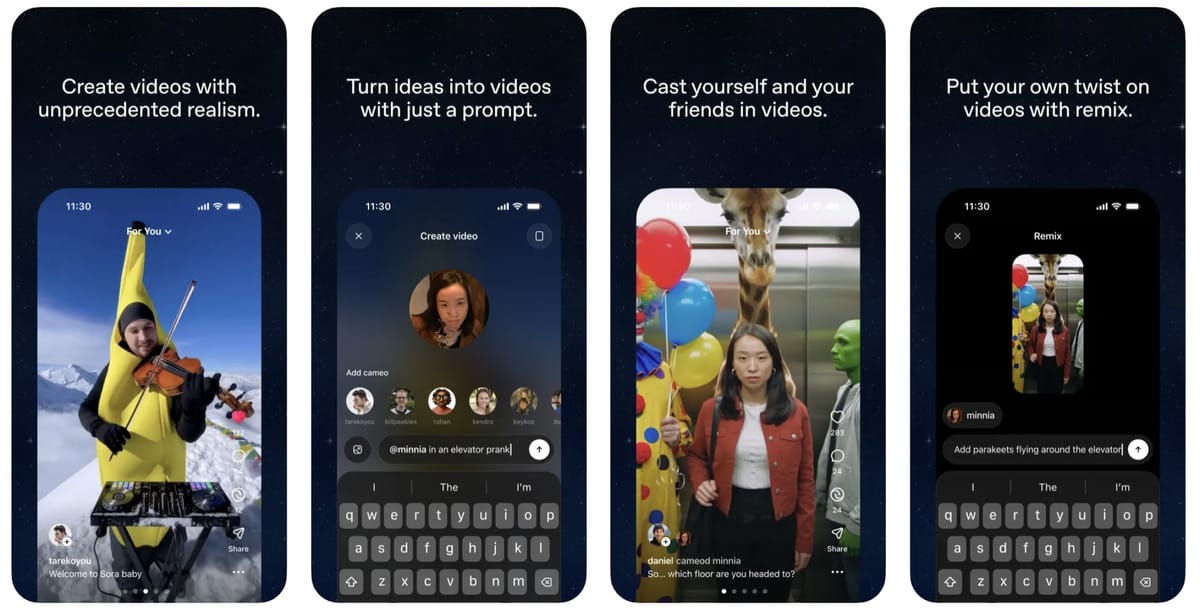OpenAI’s new social AI video–generation app, Sora, has already exceeded 1 million downloads since its invite-only launch five days ago—outpacing the early adoption of ChatGPT—while stirring debate over content, moderation, and rights in the era of synthetic media.
Key Points
- The Sora app launched on iOS in the U.S. and Canada on September 30, powered by the new Sora 2 model.
- Its “cameo” feature allows users to insert their likeness into AI videos, with revocable permissions.
- Concerns are mounting over copyright, moderation failures, and disproportionate user demographics.
sora hit 1M app downloads in <5 days, even faster than chatgpt did (despite the invite flow and only targeting north america!)!
— Bill Peebles (@billpeeb) October 9, 2025
team working hard to keep up with surging growth. more features and fixes to overmoderation on the way!
OpenAI’s decision to spin out Sora as a standalone social app signals that it views AI-generated video not just as a technical novelty—but as a new frontier for consumer engagement. The app is powered by Sora 2, a next-gen text-to-video+audio model that pays more attention to realism, physics, and synchronizing sound with visuals.
Fundamentally, Sora blends generative AI with social mechanics. Users can create clips directly from prompts or remix others’ creations, and a “cameo” feature lets those who opt in drop their likeness into AI-generated scenes. When someone uses your cameo, you receive notification and maintain veto power.
That offering seems to have struck a chord: within days, Sora raced to the top of Apple’s free app charts in the U.S., and the invitation system has become so desirable that codes are being sold publicly.
Yet that speed has exposed vulnerabilities: users have already created videos featuring copyrighted characters in bizarre or brand-incompatible contexts (think Marvel heroes duking it out in surreal scenes).
OpenAI initially adopted a default “opt-out” model for rights holders—meaning copyrighted works could be generated unless owners explicitly excluded them—but the company now says it will shift to more granular, opt-in controls.
That approach has drawn fire from major players like CAA, which last week warned the platform could undercut creator rights and called for stronger protections and transparency.
Moderation is another flashpoint. Within hours, videos surfaced depicting violence, hate speech, or manipulated public figures—even deceased ones. Some critics argue that Sora’s guardrails are too weak, and that the platform quickly drifted toward meme culture and edge-case misuse.
Demographic concerns add fuel to the fire. Early reports suggest the user base is disproportionately male and teenage, raising red flags about the app’s ability to scale inclusively.
From a business standpoint, OpenAI is treating Sora as both experiment and sledgehammer. Its swift adoption buoys the case that generative media platforms can attract users at scale. But to sustain momentum, the company will need to iron out the thornier issues of IP law, trust, content risk, and community balance.

